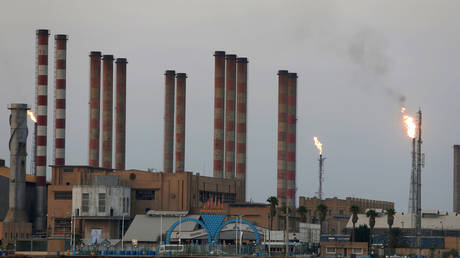On Tuesday night, for the briefest of moments, Catalonia’s government severed its ties with Spain. The region’s president, Carles Puigdemont, declared independence from Spain at around 7.40 p.m., Spanish time. Then, roughly ten seconds later, he put it all on hold, to the visible dismay of many of his fellow travelers.
The markets were pleased, interpreting the suspended declaration of independence as a retreat from the brink. The Spanish stock index IBEX 35 surged 1.5% on Wednesday, and is up 3.4% in five trading days, making up a big part of what it had lost over the prior four trading days. It remains 7% below its year-to-date high at the end of April.
For many other aspiring nation states, the key to independence lay in getting enough votes on the UN security council. But if Catalonia’s bid for self-determination ever made it to the UN, it probably wouldn’t garner enough support from the Security Council, for the simple reason that an independent Catalonia could encourage other separatist regions in the EU to launch similar bids.
So why did Puigdemont change the script at the very last minute? According to the Catalan government’s chief spokesperson, Jordi Turull, he did so in response to pressure from key international mediators that are insisting on dialogue between Barcelona and Madrid. “[They] said that if we did this they would be willing to act,” said Turull, who refused to reveal the identity of said mediators.
The problem is that Madrid has shown absolutely no interest in dialogue, for two main reasons:
- Votes — as shown by the recent rise in the opinion polls of Cuitadans, the party with the toughest line on Catalonia, in many parts of Spain these days taking a fiercely adversarial approach on Catalonia is a surefire way of winning votes. By the same logic, offering concessions is a surefire way of losing votes.
- Finance — even if Rajoy wanted, which he certainly doesn’t, Spain today could not afford to offer Catalonia the sort of financial arrangement that the much smaller Basque Country enjoys, which allows it to keep a much larger part of its tax proceeds. Spain’s public debt has mushroomed by almost 200% in the last ten years and for the first time in decades it is using debt to fund its very fast growing pension shortfall. In other words, it’s not in any kind of position to lose a large chunk of its tax revenues.
Source Article from http://feedproxy.google.com/~r/blacklistednews/hKxa/~3/xVDiAUYUfKM/M.html
Related posts:
Views: 0
 RSS Feed
RSS Feed

















 October 12th, 2017
October 12th, 2017  Awake Goy
Awake Goy 





 Posted in
Posted in  Tags:
Tags: 
















